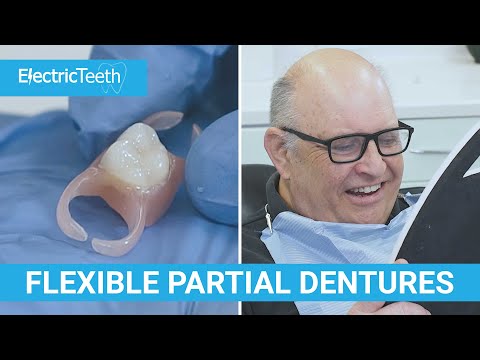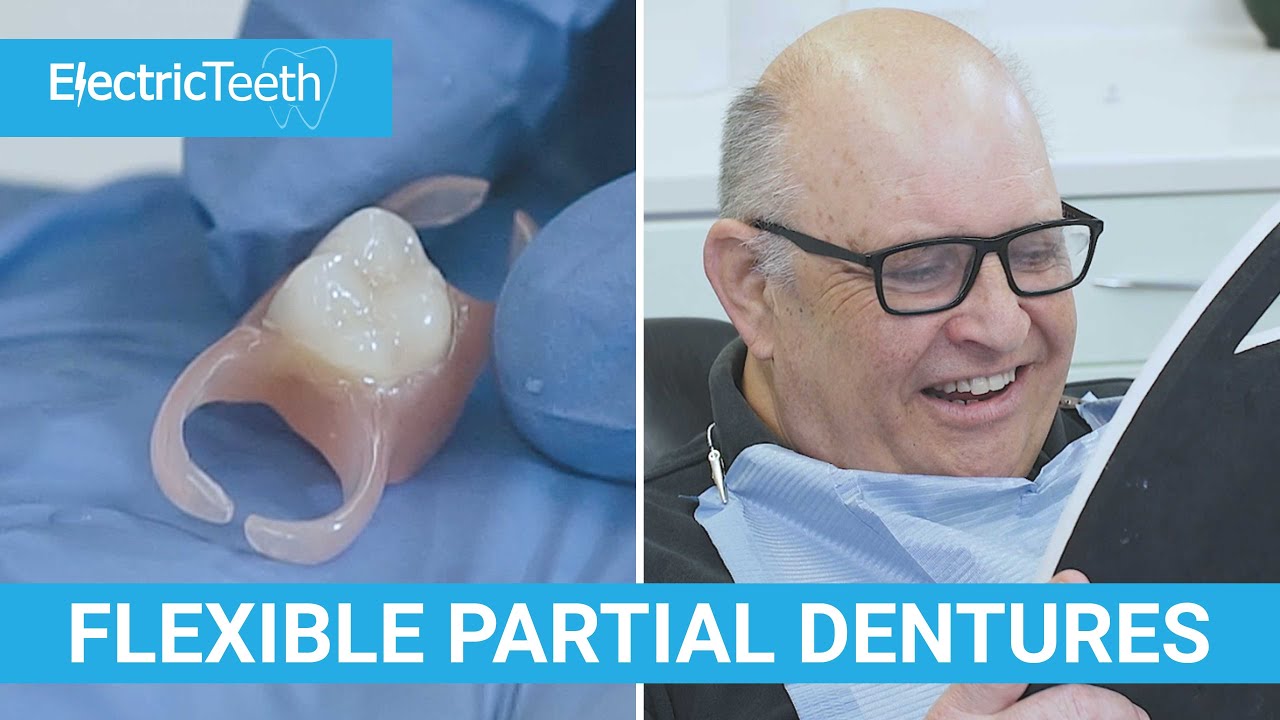Flexible dentures are a revolutionary dental solution that combines both comfort and aesthetics. Unlike traditional dentures, which can feel bulky and rigid, flexible dentures are made from a special type of material that is pliable and lightweight. This unique feature allows the dentures to adapt seamlessly to the natural contours of your mouth, providing a snug and secure fit. One of the key advantages of flexible dentures is their ability to blend in with your natural teeth effortlessly. The material used in their construction closely mimics the appearance of real gum tissue, making them virtually indistinguishable from your natural smile. This means that you can confidently laugh, talk, and eat without worrying about your dentures standing out. Furthermore, the flexibility of these dentures provides added comfort during everyday activities. They are designed to flex with your mouth’s movements, preventing irritation and sore spots that are commonly associated with traditional dentures. This flexibility also allows for a more even distribution of biting forces, reducing the risk of gum pain and discomfort. In addition to their comfort and aesthetics, flexible dentures are also incredibly durable. The special material used in their construction is resistant to fractures and breakages, ensuring that your dentures will last for years to come. Their flexibility also minimizes the risk of accidental damage when dropped or mishandled. Overall, flexible dentures offer a modern and convenient solution for those seeking a comfortable, natural-looking, and long-lasting alternative to traditional dentures. Experience the freedom and confidence of a beautiful smile with flexible dentures.

Flexible Dentures
| Features | Advantages |
|---|---|
| Highly durable and long-lasting | Flexible dentures are made of a resilient material that allows them to withstand the daily stresses of chewing and speaking, ensuring their longevity. |
| Comfortable fit | Thanks to their flexibility, these dentures adapt to the contours of the patient’s gums, providing a snug and comfortable fit. This eliminates the need for any adhesive creams or powders. |
| Esthetically pleasing | Flexible dentures are designed to blend seamlessly with the patient’s natural teeth and gums, ensuring a natural appearance. The material used in their construction is also resistant to staining, maintaining their aesthetic appeal over time. |
| Lightweight | Compared to traditional dentures, flexible dentures are significantly lighter, making them more comfortable to wear throughout the day. |
| Biocompatible | The materials used in flexible dentures are hypoallergenic and biocompatible, reducing the risk of allergic reactions or irritation in the patient’s mouth. |
| Easy to maintain | Flexible dentures can be easily cleaned with a regular toothbrush and denture cleaner. They do not require any special cleaning solutions or equipment. |
Flexible Dentures: A Perfect Fit for a Flawless Smile
Flexible Dentures: A Comfortable and Convenient Solution for Missing Teeth
When it comes to replacing missing teeth, there are several options available in modern dentistry. One such option that has gained popularity in recent years is flexible dentures. These innovative dental appliances offer a comfortable and convenient solution for individuals looking to restore their smiles. In this article, we will explore what flexible dentures are, how they work, and their advantages over traditional dentures.
What are Flexible Dentures?
Flexible dentures are a type of removable dental prosthesis designed to replace missing teeth. Unlike traditional dentures that are made from rigid materials like acrylic or metal, flexible dentures are made from a flexible nylon resin. This material provides a more natural and comfortable fit in the mouth.
Flexible dentures are custom-made to fit the unique contours of a patient’s mouth. They are created using a state-of-the-art CAD/CAM technology, which ensures a precise and accurate fit. The flexibility of the material allows the dentures to adapt to the movements of the underlying gums and jawbone, providing enhanced comfort and stability.
How do Flexible Dentures Work?
Flexible dentures work by securely attaching to the remaining natural teeth or dental implants in the mouth. They use a series of clasps or connectors to hold the denture in place, preventing it from slipping or shifting during eating or speaking.
One of the key advantages of flexible dentures is their ability to distribute the chewing forces evenly across the mouth. This reduces the strain on individual teeth, minimizing the risk of damage or discomfort. Additionally, the flexibility of the denture material allows for a more natural range of motion, making it easier to eat and speak without any limitations.
The Advantages of Flexible Dentures
1. Enhanced Comfort: Flexible dentures offer a higher level of comfort compared to traditional dentures. The soft and flexible material minimizes irritation and sore spots that are common with rigid denture materials. Patients often find them more comfortable to wear, particularly during the adjustment period.
2. Improved Aesthetics: The natural-looking appearance of flexible dentures is another significant advantage. The material closely resembles gum tissue, making the denture blend seamlessly with the surrounding gums. This ensures a more aesthetically pleasing and realistic smile.
3. Increased Durability: The flexibility of the denture material also contributes to its durability. Unlike traditional dentures that are prone to breakage or fracture, flexible dentures are more resistant to damage. They can withstand the forces exerted during chewing and are less likely to warp or break over time.
4. Easy Maintenance: Flexible dentures are easy to clean and maintain. They can be cleaned using a soft toothbrush and mild denture cleaner. Additionally, the flexible material is resistant to stains and odors, ensuring the dentures remain fresh and clean.
5. Quick and Convenient: The fabrication process of flexible dentures is relatively quick and straightforward. Once the dental impressions are taken, the dentures can be fabricated and delivered in a shorter time frame compared to traditional dentures. This makes them a convenient option for individuals who require a speedy tooth replacement solution.
Conclusion
Flexible dentures are an excellent choice for individuals seeking a comfortable, durable, and aesthetically pleasing tooth replacement option. Their flexibility, enhanced comfort, and natural appearance make them a popular alternative to traditional dentures. If you are considering dentures to replace your missing teeth, it is worth discussing the possibility of flexible dentures with your dentist to determine if they are the right choice for you.

